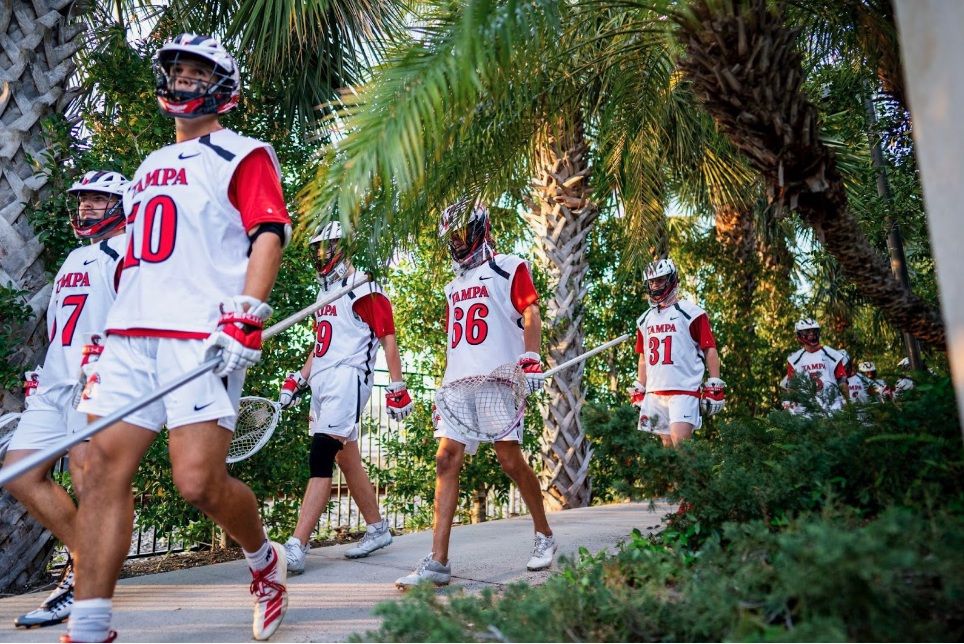
The first time I wrote in to The Minaret, knowing no one on staff except Simos, I nearly incited a race riot on campus. Fliers were posted by affiliates of Diversity Fellowship claiming that “Steve Knauss take[s] away the sophistication and credibility of our school.” I never would’ve dreamed that two and a half years later, I’d be graduating from UT as the editor of The Minaret.
It has been a long and productive journey. In hindsight, the fierce public criticism and hours I spent explaining myself were mere dress rehearsals for the responsibilities I’d assume as editor.
But at the time it was overwhelming. I had been tempted to write in because of a reactionary article advocating a SWAM (Straight, White, American Male) Appreciation Month. Abhorred by such filth, I rebutted satirically by running through a list of SWAM atrocities-ranging from genocide against our indigenous population to genocide against Iraq-to include in the “celebration” of SWAM month. But satire is a difficult art, and many students took me for nothing short of an open advocate of genocide. Thus the first of many life lessons I learned at The Minaret is that satire is best left to professionals.
But even back then, I was impressed by the professionalism of The Minaret. Then Editor Victor O’Brien, despite having never met me, dedicated the following week’s front page to defending my article and setting the record straight. It made me feel like my voice was respected and welcome at The Minaret, and it made me feel like the paper was both attuned to the complaints of students and principled enough to stand up for the truth. Above all, it made me want to continue writing.
Therefore, I was predisposed to admiring Victor before I met him. When I eventually did, I immediately saw him as a role model and became proud to call him a friend. Victor was the ideal student leader. Adjectives like hard-working, ethical, reflective and decisive are vast understatements of his character, and his face should be on every damn leadership pamphlet that the University of Tampa circulates.
Many times throughout my year as editor, I felt like the Organization of Afro-American Unity must have felt after the death of Malcolm X. For the indelible mark of Victor will remain at The Minaret for years to come, as we continue to benefit from all his thankless hard work during two years as editor. But more than that, we continue to benefit from the bonds of friendship and human warmth that Victor provided. He doesn’t know this, but I cried after we said good-bye when he graduated in May of 2007.
But I suppose I’m getting carried away, and I’m definitely getting ahead of my story. After all, my best experiences at UT were not only those deep bonds established through The Minaret, but also my cherished friendships with outstanding and underappreciated professors. In fact, it is strange how the two have often intertwined.
For example, it was just after Professor Janice Law allowed me to explain myself by reading my SWAM article aloud to my Civil Rights class (everyone understood once I gave the satire the proper intonation) that she so generously took me aside and salvaged me from the dark side-the business college. Though she likes to joke that she saved me from a career as a subpar accountant, she’s right. Her caring advice and sustained friendship have been invaluable to me over the course of my time at UT.
In addition to all else, Professor Law granted me a major favor by introducing me to Dr. Terry Parssinen. Dr. Parssinen’s guidance has been indispensable, both when I was originally applying for the Oxford term abroad, and subsequently during the entire process of application to graduate school. I’ve completed over half my history requirement in Dr. Parssinen’s classes or independent studies, and it was his erudition, passion, and engaging teaching style that solidified my desire to become an academic.
I could go on for pages about the wonderful professors I’ve met at UT, and how they’ve each influenced my life. I could talk about how Dr. Norma Winston’s Sociology 100 course was so interesting that I added sociology as a major as soon as I escaped from the college of business, and how she remained a friend and adviser to help me navigate through that journey. Or I could mention Dr. Mike Donnelly, the educator par excellence who opened my 18-year old mind to the creative possibilities for change and human improvement, and how it is future students’ loss that a foolish English department failed to keep him here. And I could bring up Dr. Ryan Cragun, who has gone absolutely out of his way to help explain crucial concepts and methods to me, concepts and methods that I probably won’t need until later in graduate school.
There is also Dr. Thomas Hegarty, Dr. Bruce Friesen, and Dr. Al Tillson, all of whom taught me a fascinating course at UT that significantly changed my view of the world. But I’m afraid I’ve gone on for too long already about the outstanding and highly personable faculty at UT. I’m definitely going to miss them all, and hope that we’ll continue to remain in touch, as I deeply value their advice, guidance, and friendship.
But I can’t omit speaking of one life-changing faculty member who again bridges the gulf between academics and The Minaret. Charles McKenzie, every year’s Advisor of the Year as far as we’re concerned, has been, well, everything to The Minaret. In last year’s farewell, Victor described him as “a constant supporter, a constructive critic, a visionary




Leave a Reply